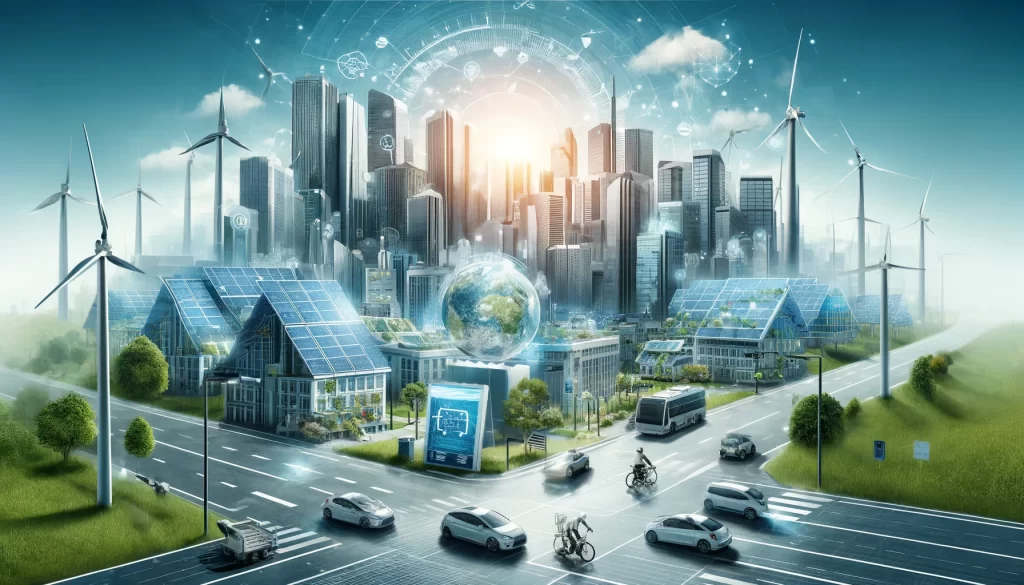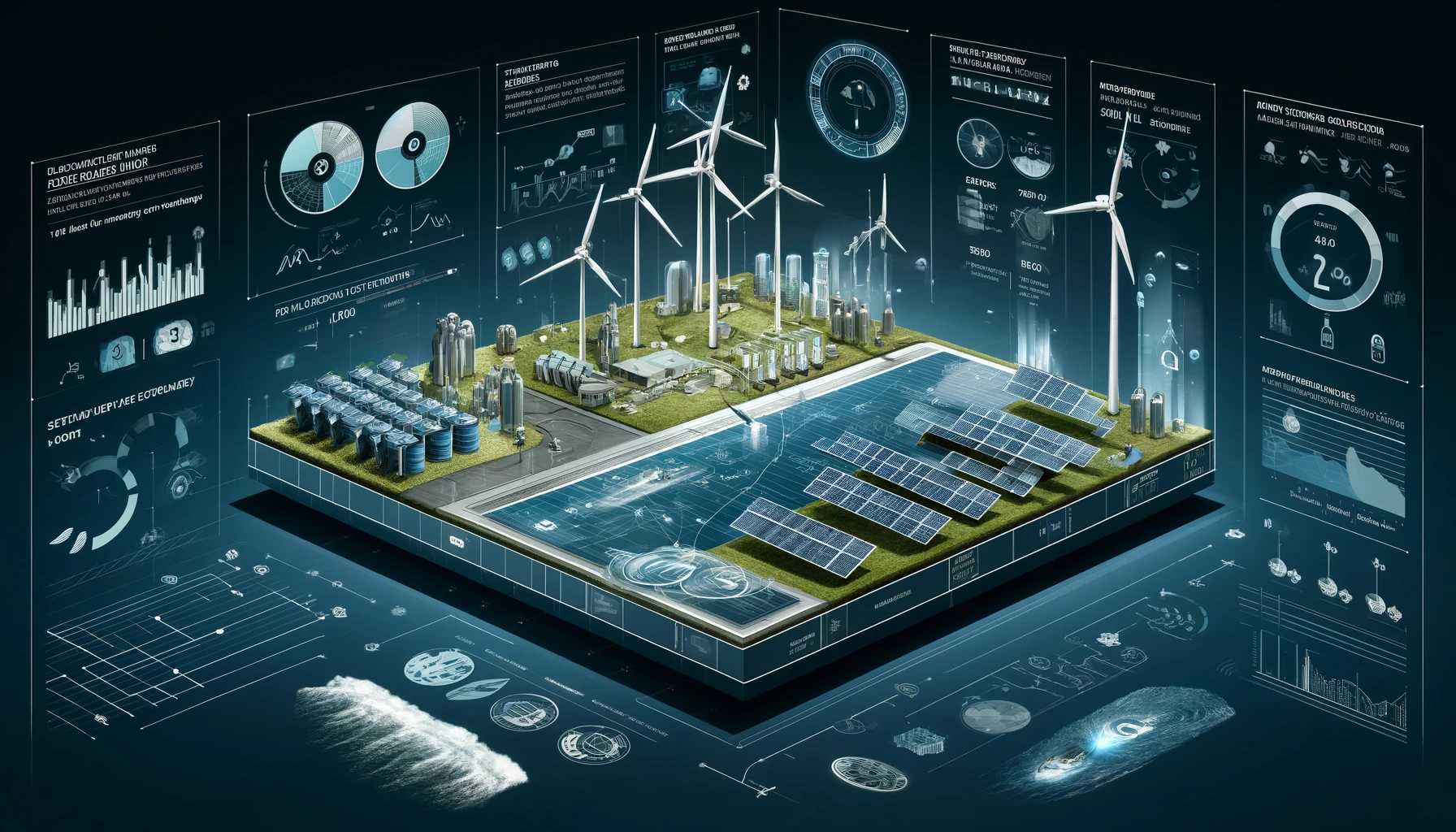As we move deeper into the 21st century, the shift towards renewable energy technologies is not just an environmental imperative but also an economic and social necessity. The advancements in renewable energy tech are poised to redefine how cities, homes, and industries are powered, driving a significant transformation in our energy systems. This detailed exploration of the future of renewable energy tech not only underscores its importance but also highlights the innovations that could shape our world in the coming years.
The Rise of Solar Power
Solar energy, driven by advancements in photovoltaic (PV) technologies, continues to lead the charge in the renewable sector. The future promises even more efficient solar panels, capable of converting sunlight to electricity at unprecedented rates.
Innovations to Watch:
- Perovskite Solar Cells: These offer higher efficiency and lower manufacturing costs than traditional silicon-based cells.
- Solar Skins: Innovative solar panels designed to aesthetically blend with building exteriors while maintaining high energy efficiency.
Wind Energy: Harnessing More Than Just Air
Wind energy has been a cornerstone of renewable energy portfolios worldwide. Future technologies aim to optimize energy capture and reduce dependency on fossil fuels further.
Emerging Trends:
- Floating Wind Turbines: These can be placed in deep water, opening up vast new areas for wind energy farms that are not feasible with traditional setups.
- Smart Turbines: Equipped with sensors and AI, these turbines can adapt to wind conditions in real-time, maximizing output and reducing wear and tear.
Hydropower and Beyond: Tapping Into Water Power
While hydropower is one of the oldest sources of renewable energy, new technologies are making it more efficient and less environmentally intrusive.
Technological Advances:
- Eco-Friendly Turbines: Designed to minimize ecological disruption and improve fish passage.
- Energy Storage Solutions: Advanced batteries and pumped storage systems that help manage the intermittent nature of renewable energy.
The Role of Geothermal and Wave Energy
Geothermal and wave energy represent a smaller but significant portion of the renewable energy matrix. With technological advancements, these sources could become more mainstream.
Future Potential:
- Enhanced Geothermal Systems (EGS): These systems could exploit geothermal energy from locations previously considered unviable.
- Wave Energy Converters: Innovations aim to improve durability and energy efficiency, making wave energy a viable option for many coastal regions.
Integration and Smart Grid Technologies
As renewable technologies advance, so too must the systems that integrate and manage these energy sources. Smart grids are critical to this integration, using AI and machine learning to optimize energy distribution and storage.
Smart Grid Developments:
- Energy Internet: Conceptualizing an internet-like grid where energy can be shared seamlessly across regions.
- Blockchain for Energy: This can enhance the transparency and efficiency of transactions within the energy markets.
The Economic and Social Implications

The shift to renewable energy is not just about technology but also involves significant economic and social changes.
Economic Benefits:
- Job Creation: The renewable energy sector is poised to create millions of jobs, from manufacturing to installation and maintenance.
- Reduction in Energy Costs: As technologies improve and scale up, the cost of renewable energy will continue to decrease, making it more accessible.
Social Impact:
- Energy Independence: Countries can reduce their dependence on imported fuels, enhancing their energy security.
- Environmental Health: Reduced reliance on fossil fuels means lower emissions of pollutants and greenhouse gases.
Conclusion
The future of renewable energy tech is bright, with numerous innovations on the horizon that promise to make renewable energy more efficient, affordable, and widespread. As we look forward to these developments, it’s clear that renewable energy technologies will play a crucial role in shaping a sustainable and prosperous future.
